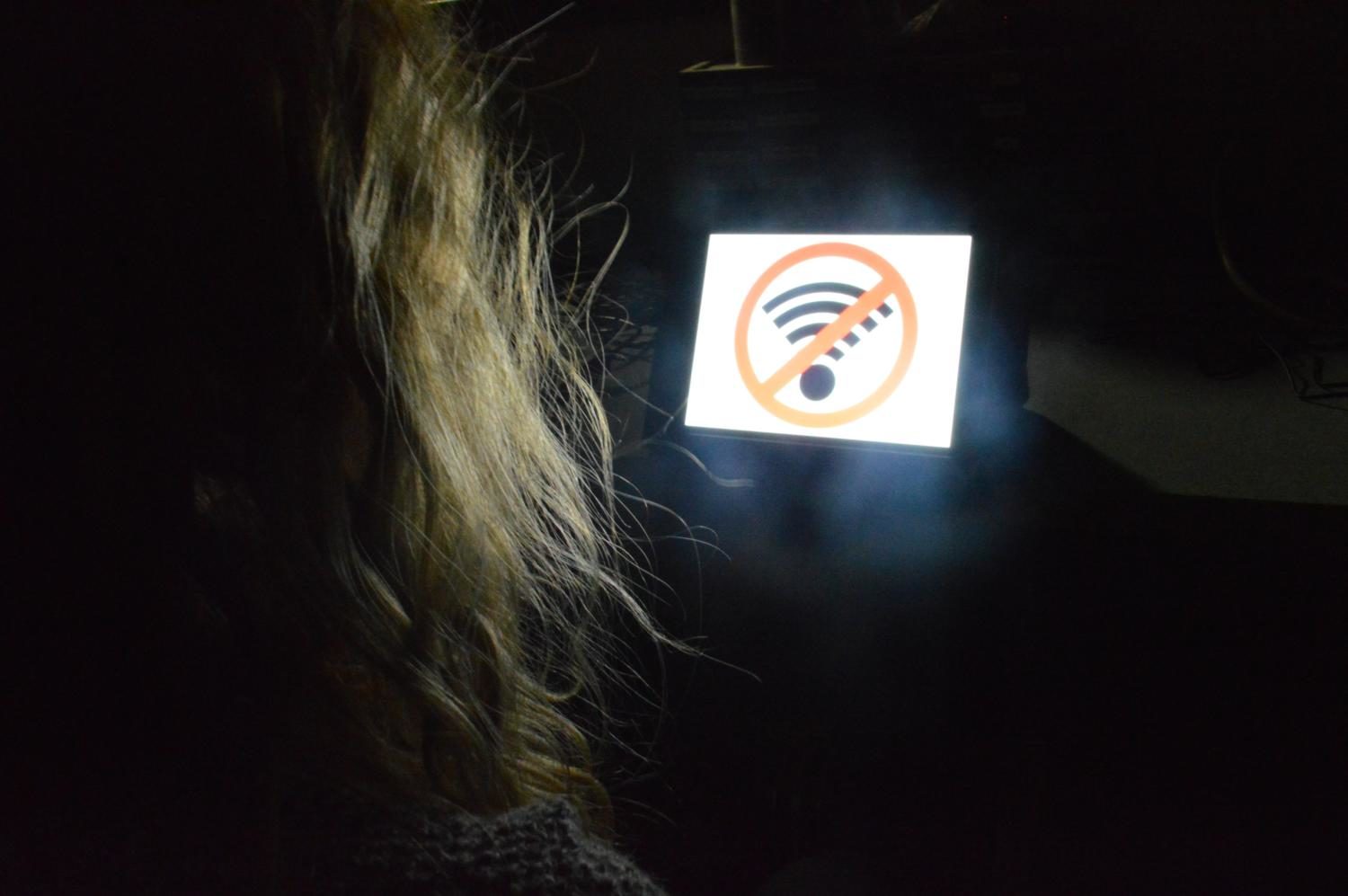Generation of disconnect
Negativity on social media is becoming too widely accepted by teens
Photo by Bella Murdock
Teenagers are terrified of being disconnected from their peers. They are permanently attached to their social medias.
September 4, 2017
“I want to die, I’m having another existential crisis, and I wish I was never born.” These are the kind of jokes our generation gives endless retweets and likes to on social media. It’s common for social media users to complain, and post negative comments like these, and they have a really bad impact on teens’ mental health.
For some reason, a lot of teenagers agree and relate to jokes about issues like deeply rooted insecurities and mental illnesses, yet many young social media users still strive to maintain the image of being an aloof teen. The contradiction of being so open about such personal problems, but making sure people think we don’t care about anything else is unusual, and doesn’t make any sense. Why are we so vulnerable when talking about our own problems, but not about our feelings for anything else?
Teens tend to come forward readily about having depression, anxiety, bipolar disorder, and suicidal thoughts because other people relate. The jokes aren’t necessarily a desperate call for help, but an attempt to get retweets. People know what will get them a lot of likes, and they take advantage of it. However, popularizing this mindset makes other teens want to conform so they can relate to this weird, dark humor. Viral tweets like “hating myself just seems natural” written by @sosadtoday got over 2,000 retweets and 4,000 likes. Not only that, the fact that an account called @sosadtoday is verified on twitter is quite concerning. Our generation may have gotten through the emo/scene kid phase, but it seems like we’re still stuck in a dark pit of wallowing in self pity.
Although these jokes were intended to be lighthearted, it doesn’t change the fact that we’re preaching negativity across social media platforms and romanticizing it. The teenage mind is so easily influenced, especially now that we’re in the age of social media where everyone can, and will, shove their opinion into your head. With things like depression being such a hot topic (pun intended) there’s no way so much negativity has a positive outcome for anyone.
Dr. David Olges is an assistant professor at Regent University and has a doctorate in counselor education and supervision who agrees that promoting negativity on social media platforms has a bad effect on teenagers. He gave an example that proved and displayed this belief.
“When someone tweets ‘I want to die’ and we know they’re not suicidal, we’re not worried about that. But for someone who is feeling depressed or suicidal, maybe that makes them feel like ‘Maybe I shouldn’t say anything because people will only make a joke out of it.’ It keeps them quiet longer and makes them feel like they don’t fit.” Olges said. This hypothetical situation he mentioned is something that a lot of social media users do not think about before they hit send. People subconsciously silence those who are struggling by make a simple joke.
These destructive jokes have gone so far and become such a large part of pop culture that companies are catching on and making merchandise with “quirky” sayings on them like “stressed, depressed, but well dressed.” In the end, what good could possibly come out of spewing negativity to be edgy and funny?
The practice of self-love and spreading positivity has begun to create a movement on social media platforms, but the positivity has not yet surpassed the negativity. Do your part by smiling at someone you don’t know in the hallway, even if it means swallowing your pride and not looking like an angsty teen for one second, reaching out to old friends you miss, and complimenting that girl’s outfit. Make someone’s day, they could probably use it.




